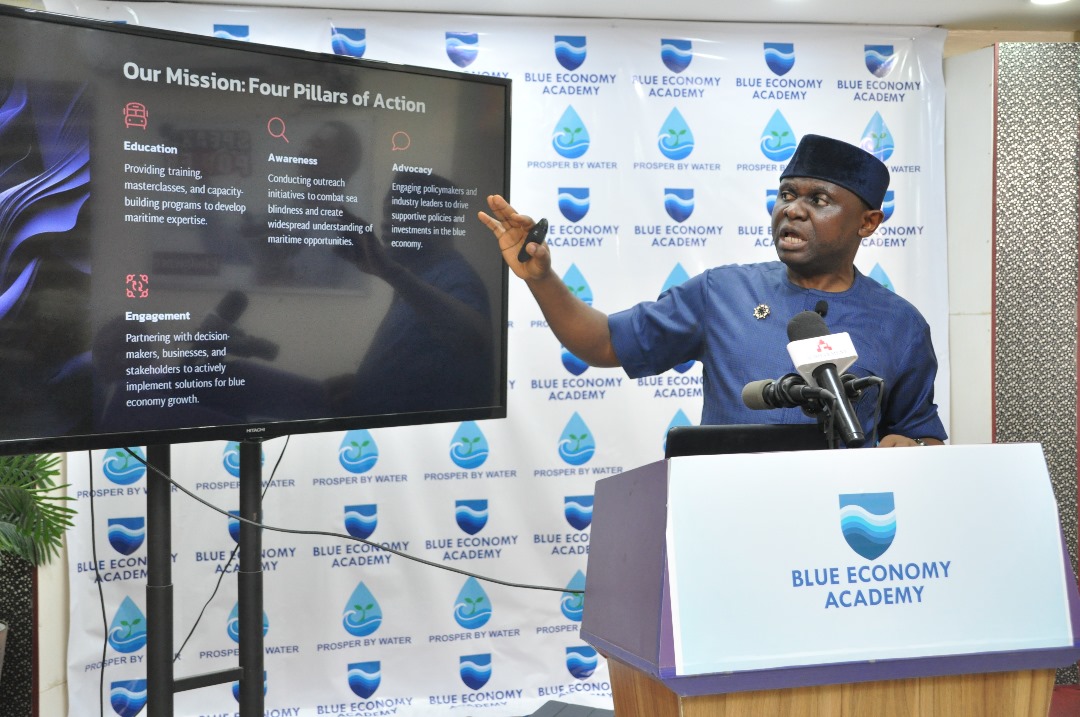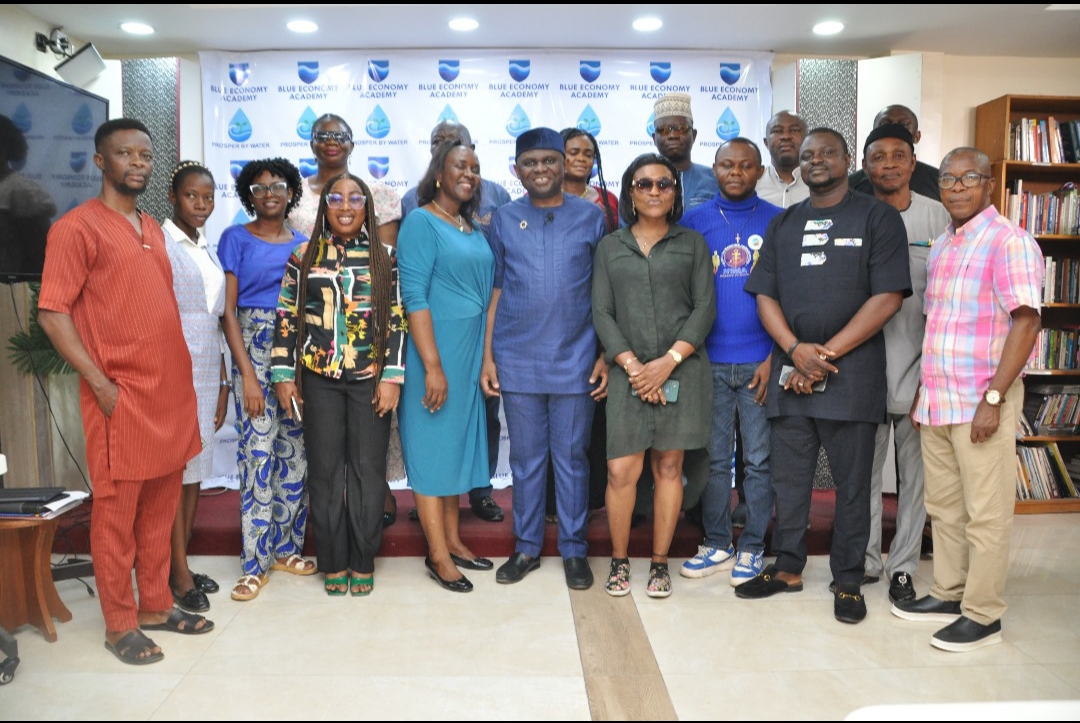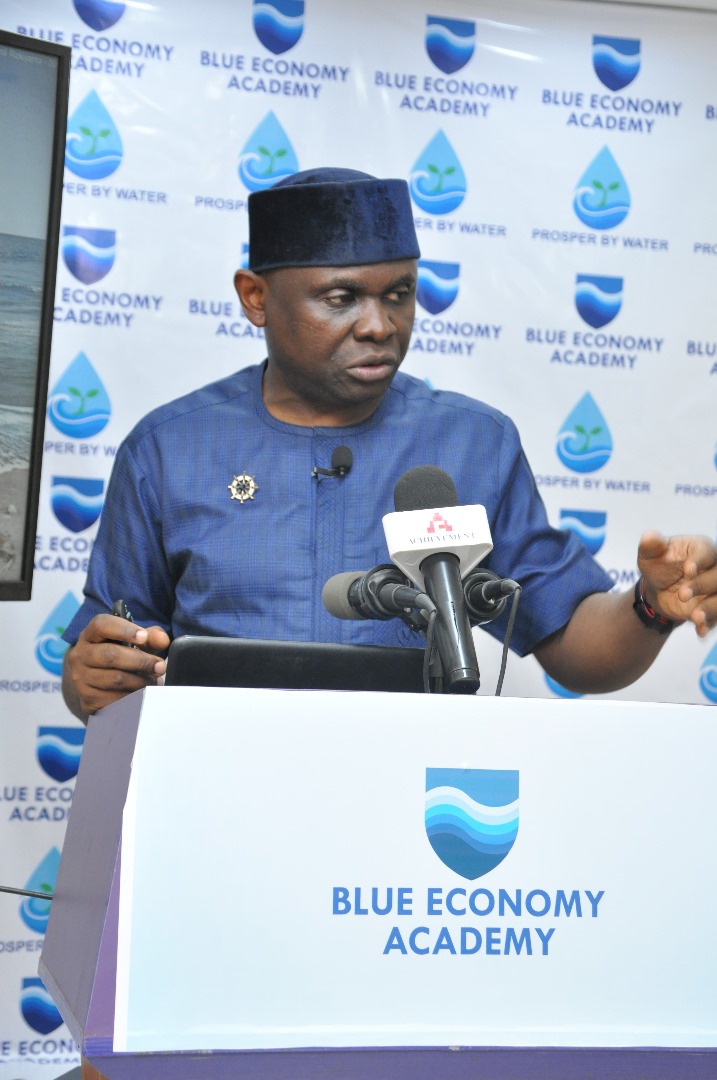
Former Special Adviser on Strategy and Communications to the immediate past Director-General of the Nigerian Maritime Administration and Safety Agency (NIMASA), Ubong Essien, has unveiled the Blue Economy Academy, an institution designed to educate Nigerians on the vast opportunities within the maritime sector.
The newly-established academy, which recently commenced operations, is positioned to eliminate “sea blindness” by increasing awareness and public engagement in ocean-driven economic activities.

Speaking at the official launch in Lagos on Saturday, Dr. Bashir Jamoh’s, former Special Adviser on Strategy and Communications highlighted the academy’s role in capacity building. He explained that its curriculum is structured around 10 key economic pillars—referred to as the “ten buckets of prosperity”—which include blue commerce, bounty, cities, capital, governance and justice, nexus, climate, talent, ventures, and power.
Essien, the academy’s founder, emphasized the need for Nigerians to deepen their understanding of the maritime sector’s economic potential. He noted that collaboration between private and public sector organizations would be instrumental in harnessing the full benefits of the industry.
He further stated that the academy was established to educate individuals on the immense wealth embedded in Nigeria’s waters while advocating for policies that support maritime economic activities.
“As a coastal nation, our waters are central to our economic well-being, affecting not just the maritime industry but the entire country,” Essien remarked.
He explained that increased knowledge about the maritime domain can unlock new opportunities, helping individuals align their skills with industry demands. The academy will offer various training programs, including field visits to coastal states, and some specialized courses will run for up to a month.
Essien, who also serves as the Dean of the School of Eloquence (SOE), underscored the significance of skilled professionals in advancing Nigeria’s blue economy. He stressed that the Blue Economy Academy was created to bridge the knowledge gap and provide structured training on how individuals can tap into maritime wealth.
“In Nigeria, many people remain unaware of the true value of our waters. The economic opportunities they hold are vast, yet largely unrecognized,” he noted.

Essien outlined the academy’s vision of fostering a Nigeria that prospers through its maritime resources. He explained that through strategic training and education, the institution aims to systematically eliminate the lack of awareness surrounding ocean-based industries.
“Through in-depth research, we developed a framework centered on ten thematic areas that will guide our training programs. These ‘ten buckets’ serve as the foundation for understanding and leveraging the blue economy,” he explained.
He also emphasized the need for specialized maritime education, pointing out that apart from Nigerian Ports Authority (NPA) initiatives, maritime training in Nigeria remains largely fragmented. Comparing it to systems in the United States, he noted that industry-specific learning is crucial for success.
“Just as we have structured learning at the School of Eloquence to be function-specific, the Blue Economy Academy will adopt the same approach. Industry experts will lead knowledge-sharing sessions, ensuring that learning remains relevant, practical, and capable of influencing policy decisions,” he concluded.
He explained that the launch of the Blue Economy Academy marks a major step toward bridging Nigeria’s maritime knowledge gap, equipping individuals with the expertise needed to unlock the vast economic potential of the nation’s waters.















